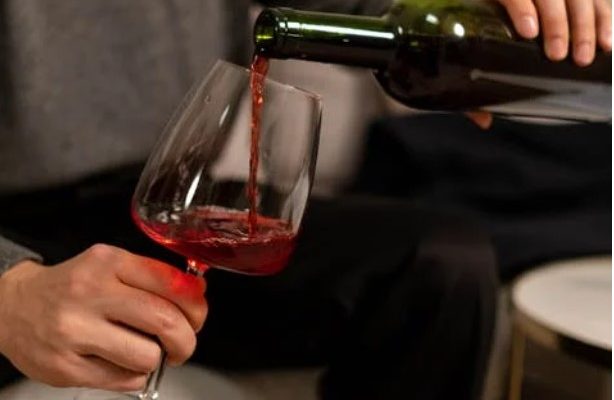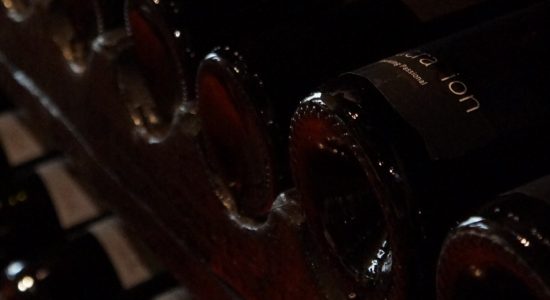What To Do When Homemade Wine Won’t Stop Fermenting

Winemaking is a great hobby, though it can get a bit complicated. It’s a detailed process: If even one thing goes wrong, you can end up with wine that isn’t what you expected. One major step of the winemaking process is fermentation.
If your homemade wine does not stop fermenting, you will need to intervene and force it to stop. You can do this through cold shock, adding alcohol, or pasteurization.
In the rest of this article, I’ll explain possible reasons why your homemade wine won’t stop fermenting. I’ll also tell you how to force the fermentation process to stop if necessary.
Why Your Homemade Wine Won’t Stop Fermenting
If your wine is fermenting for longer than you anticipated, don’t panic. Usually, wine can’t really ferment for too long, and in most cases, fermentation will stop naturally. However, it is possible to make mistakes during the winemaking process that causes problems during fermentation, which can potentially ruin your wine.
The following video explains what can happen if wine ferments for too long:
Typical wine fermentation takes five days to two weeks, so if your fermentation has continued for months, something is wrong.
There are various reasons why your homemade wine won’t stop fermenting. The following table outlines some of the most common ones:
| Cause of Failure | Explanation |
| The temperature isn’t right. | Wine yeast is a living organism that thrives within a specific temperature range (between 70°F and 85°F or 21°C and 29°C). Lower temperatures (between 55°F and 68°F or 13°C and 20°C) can slow down and prolong the fermentation process. |
| The concentration of sugar is too high. | Yeast needs sugar to make alcohol, but when the sugar concentrations are too high, it stops acting as food for the yeast. Therefore, the yeast won’t produce alcohol. This issue is common with fruity wines because fruit contains sugar, and additional sugar may become too much for the yeast. |
| Something went wrong with starting the yeast. | Wine yeast often requires the user to re-hydrate the yeast in warm water. This seems simple enough, but if the yeast is left in the water for too long, or if the water is too warm, yeast cells are destroyed, and the cell count is too low to support proper and timely fermentation. |
| The yeast doesn’t have enough nutrients. | Yeast needs nutrients. Without them, it cannot perform to its fullest ability, and fermentation will take longer. |
| The yeast is too old, or it wasn’t stored properly. | If your wine is fermenting slowly, ask yourself how long you’ve had the wine yeast that you used and how it was stored. If the wine yeast is too old or if the cells were killed due to improper storage, the yeast won’t be able to ferment properly. |
Whatever the reason, if your homemade wine won’t stop fermenting, this is an indicator that something is wrong.
What To Do if Homemade Wine Won’t Stop Fermenting
Successful fermentation can end on its own, but if your homemade wine has been fermenting for months and won’t stop, there are ways you can force it to stop. If you must stop fermentation yourself, your wine may not taste how you want it to, but at least you’ll free up your equipment to try again.
That said, don’t throw away wine that’s been processed through fermentation you stopped yourself. Some people actually prefer the taste of such wines.
Here are some methods for stopping fermentation if your homemade wine won’t stop fermenting naturally:
1. Lower the Temperature of the Wine
Yeast develops at room temperature, so lowering the temperature of your wine can halt the fermentation process.
While fermenting your homemade wine at low temperatures can prolong the process, exceptionally low temperatures (18°F (-8°C) or lower) can halt fermentation altogether.
That’s because yeast dies when it freezes. So, freezing your wine is a fantastic way to stop it from fermenting.
You may want to place your wine into a wine cooler and lower the temperature to 18°F (-8°C) or lower. You can also put your wine into your home freezer and use a food thermometer or infrared thermometer to ensure the internal temperature is appropriate.
Of course, chilling your wine at very low temperatures isn’t the only way to kill wine yeast and stop fermentation. High temperatures can achieve the same results.
2. Raise the Temperature of Your Wine
In addition to cold temperatures, excessively hot temperatures can kill wine yeast. At-home pasteurization utilizes hot water to stop wine fermentation.
Yeast begins to die off when exposed to temperatures of 140°F (60°C), and water begins boiling at about 212°F (100°C). To stop fermentation quickly (and without using a freezer):
- Pour your wine into a canning jar.
- Screw on the lid.
- Place it in a pot with water.
- Place the pot (with the jarred wine) onto a stovetop burner and heat the water from 140°F to 212°F (60 to 100°C). You can wait for the water to boil or use an infrared thermometer to ensure the water is at the correct temperature. After about thirty seconds, this high heat will kill all active yeast inside the wine, ending fermentation.
3. Use Alcohol To Stop Fermentation
Alcohol is a popular antiseptic due to its ability to kill bacteria. It can also kill yeast, helping to stop fermentation.
One of the major byproducts of fermentation is ethanol (a type of alcohol), which is why the fermentation process is crucial to creating wine, a beverage that contains alcohol. But adding alcohol to your wine can stop fermentation, as alcohol kills yeast, especially when it’s plentiful.
If you don’t want to freeze or boil your wine, you can add liquor with an alcohol percentage of 94% or higher to kill the yeast. Fortification is a common practice among winemakers to add spirits to your wine.
Brandy is a common choice for fortification, but you can also use a small amount of grain alcohol to stop fermentation.
Final Thoughts
Most of the time, if you use a high-quality winemaking kit and carefully follow a recipe, the fermentation process will go smoothly. However, if your wine won’t stop fermenting, you can force it to stop through a cold shock, adding alcohol, or pasteurization.






